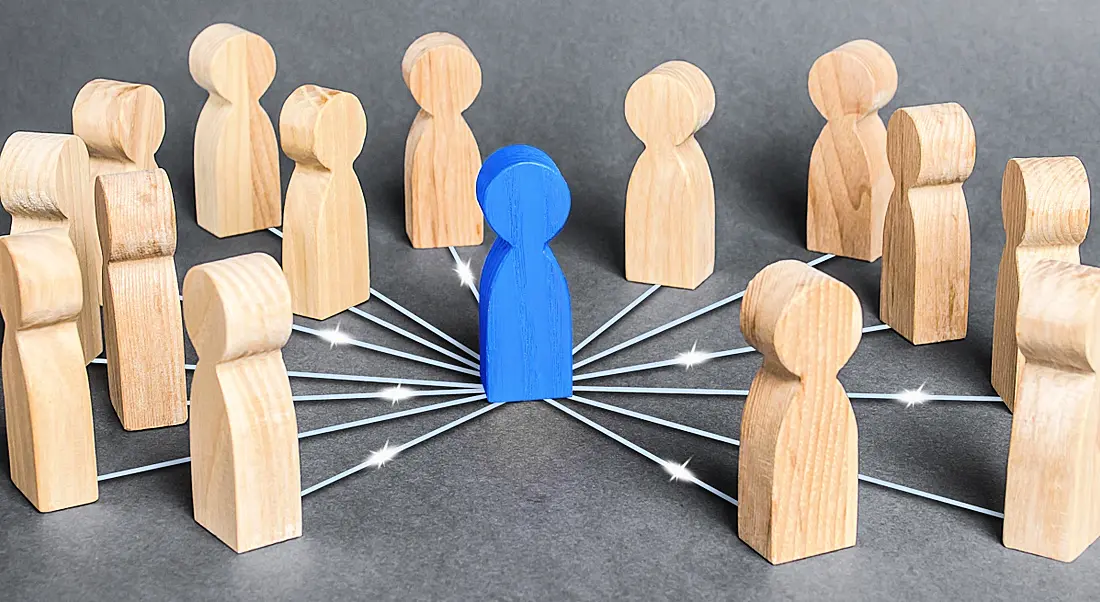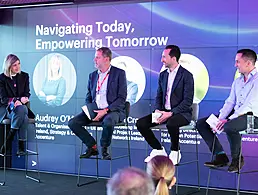C-suite roles have changed significantly in the last decade, so how can a modern CEO upskill and stay ahead of the crowd?
The CEO position is an old one, dating back to around the 1910s and while many of the demands of the job remain the same, for example a commitment to hard work and perseverance, it goes without saying that much has changed.
Ironically, many of the most pressing issues today mimic the challenges of the past, namely instances of political instability, a global pandemic, conflict and the struggle for human rights, but modern CEOs must also contend with the rapid evolution of advanced technologies, the ever worsening climate crisis and growing cybersecurity concerns.
In a changing landscape, there is an expectation placed upon organisational CEOs that they operate much like a comic book superhero, ready to tackle any challenge that comes their way. While this is an unrealistic expectation, CEOs do need to be as prepared as possible, so how can the modern-day CEO upskill for every eventuality?
Progressive soft skills
When it comes to the inclusion of minority groups such as people of colour, women, those with disabilities and other marginalised individuals, the modern working world is undoubtedly more committed to diversity, equality and inclusion (DEI) efforts than previous generations, but that doesn’t mean that the work ends here.
While many companies and CEOs incorporate DEI measures into working culture, often it is a case of virtue signalling or very little comes out of it. Company-wide DEI training for all members of staff – including C-suite personnel – ensures that soft skills are being honed and the right tone is set. Efforts to make the working environment a more equitable place will never end, so this is an area that everyone needs to stay on top of.
Unlikely leadership
For decades, groups of employees, such as the Greatest Generation, the Silent Generation, the baby boomers, Generation X and to a certain extent millennials stuck to a fairly standard working model that, while not completely rigid or universal, was comparable across the years.
However, in the almost five years since the pandemic and Gen Z joined the workforce, working structures have changed significantly. Many roles are now flexible or fully remote and attitudes towards work have drastically altered. Younger generations are much less inclined to offer loyalty to companies, with job hopping becoming far more common along with a notable rise in ‘conscious unbossing’.
With this in mind, modern-day CEOs are going to have to be cognisant of changing attitudes and hone the ability to recognise the signs of potential in unconventional employees. Gen Z and eventually Gen Alpha are the future CEOs and workplace leaders, leaving it up to the current-day leaders to grow and develop their talents in a changing landscape.
Tech and intuition
Globally the mass digitalisation of the workplace has been extreme, but much like the need for continued investment in and commitment to DEI initiatives, the goal of navigating a technologically transformed work environment will likely never end. There is always going to be a new innovation or way of doing things that modern CEOs will need to be skilled in.
CEOs, alongside their teams should regularly partake in seminars, workshops and training opportunities and display a willingness to embrace new and emerging technologies. However, it is also important that leaders don’t lose their edge by relying too much on hard skills.
If an automated process or tool is not as efficient or worthwhile as the non-tech route, then CEOs should recognise this and be open to traditional methods. Basically if it isn’t broken, don’t fix it.
Strategic forecasting
The world is, for lack of a better word, chaotic at the moment and this is nothing new. Back when the word CEO was first coined, the world was in the midst of the First World War. In the decades since, there has been a Second World War, numerous conflicts and several pandemics excluding the latest – Covid-19.
That’s a long way of saying that chaos is to be expected and therefore CEOs who can apply strategic forecasting – that is analysing market factors to predict organisational outcomes – are certainly well-positioned.
No one can know everything all of the time, but by applying data, analytics and other information sources to ascertain the chances of economic success or failure, you are leveraging the tools at your disposal and giving the company and its employees hope for their careers and the future of the organisation.
And that segues nicely into perhaps one of the most important skills a modern CEO can possess: the ability to provide hope and enable people to trust in you and your vision. Once you have that, you are already on your way to making a truly positive impact.
Don’t miss out on the knowledge you need to succeed. Sign up for the Daily Brief, Silicon Republic’s digest of need-to-know sci-tech news.




